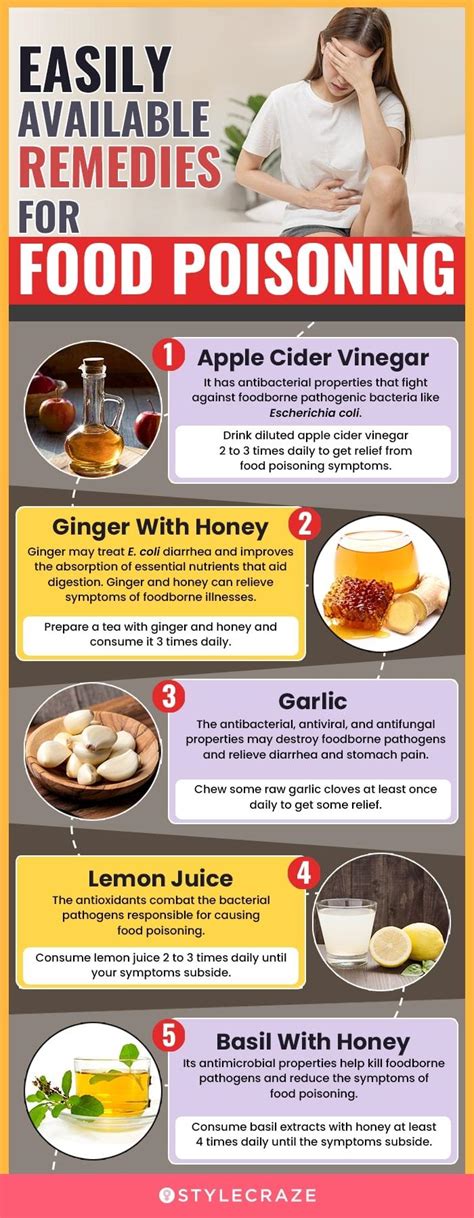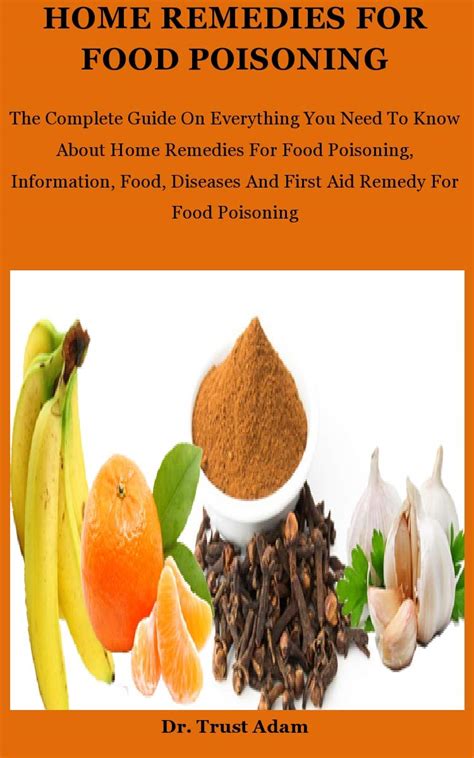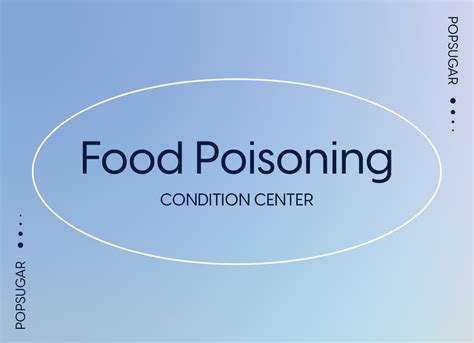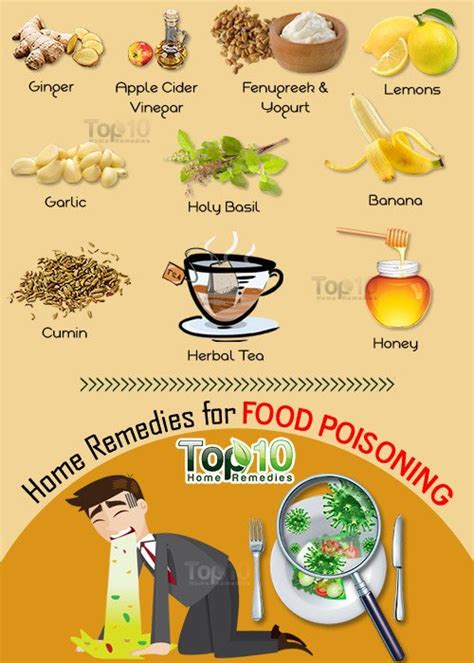Intro
Learn 5 ways to help food poisoning symptoms, including natural remedies, hydration methods, and dietary changes to alleviate nausea, vomiting, and stomach cramps, and discover how to prevent foodborne illnesses.
Food poisoning is a common health issue that affects millions of people worldwide every year. It occurs when we consume contaminated or spoiled food, which can lead to a range of symptoms, from mild discomfort to life-threatening complications. The importance of understanding and addressing food poisoning cannot be overstated, as it not only affects our health but also has significant economic and social implications. In this article, we will delve into the world of food poisoning, exploring its causes, symptoms, and, most importantly, ways to help alleviate its effects.
The prevalence of food poisoning is a stark reminder of the need for vigilance in our daily lives, particularly when it comes to the food we eat. Whether it's a meal at a restaurant, a snack from a street vendor, or a home-cooked dinner, the risk of food poisoning is ever-present. This is why it's crucial to be aware of the signs and symptoms of food poisoning, which can include nausea, vomiting, diarrhea, abdominal cramps, and fever. By recognizing these symptoms early on, we can take prompt action to mitigate the effects of food poisoning and prevent it from escalating into a more serious condition.
Understanding the causes of food poisoning is also vital in our quest to combat this health issue. Food poisoning can be caused by a variety of factors, including bacteria, viruses, parasites, and toxins. Common culprits include Salmonella, E. coli, and Listeria, which can contaminate food through improper handling, storage, or cooking techniques. Furthermore, food poisoning can also be caused by consuming spoiled or expired food, which can harbor harmful bacteria and other microorganisms. By being mindful of these causes, we can take proactive steps to prevent food poisoning and protect ourselves and our loved ones from its harmful effects.
Introduction to Food Poisoning Remedies

When it comes to helping food poisoning, there are several remedies and strategies that can provide relief and support the recovery process. From home remedies to medical treatments, the options available to us are diverse and often effective. In this section, we will explore some of the most common and effective ways to help alleviate the symptoms of food poisoning, including staying hydrated, getting plenty of rest, and using over-the-counter medications.
Staying Hydrated
Staying hydrated is one of the most critical aspects of recovering from food poisoning. When we experience symptoms like vomiting and diarrhea, our bodies lose essential fluids and electrolytes, which can lead to dehydration if left unchecked. To combat this, it's essential to drink plenty of fluids, such as water, clear broths, and electrolyte-rich beverages like coconut water or sports drinks. We should aim to drink small, frequent amounts to avoid overwhelming our stomachs and exacerbating our symptoms.Home Remedies for Food Poisoning

In addition to staying hydrated, there are several home remedies that can help alleviate the symptoms of food poisoning. These remedies are often simple, inexpensive, and effective, making them a great starting point for our recovery journey. Some of the most popular home remedies for food poisoning include:
- Ginger: Known for its anti-inflammatory properties, ginger can help soothe the stomach and reduce nausea.
- Banana: A rich source of potassium, bananas can help replace lost electrolytes and support healthy digestion.
- Rice: Plain white rice can help firm up stool and reduce the frequency of diarrhea.
- Applesauce: Like bananas, applesauce is a low-fiber, easily digestible food that can help calm the stomach.
Over-the-Counter Medications
For more severe cases of food poisoning, over-the-counter medications can provide additional relief and support. Anti-diarrheal medications like loperamide (Imodium) can help slow down bowel movements and reduce the frequency of diarrhea, while anti-nausea medications like meclizine (Bonine) can help alleviate vomiting and dizziness. However, it's essential to use these medications judiciously and under the guidance of a healthcare professional, as they can have side effects and interact with other medications.Medical Treatment for Food Poisoning

In some cases, food poisoning can be severe enough to require medical attention. If we experience symptoms like bloody stools, severe abdominal pain, or signs of dehydration, it's essential to seek medical help promptly. A healthcare professional can provide a proper diagnosis, recommend treatment options, and offer guidance on how to manage our symptoms and support our recovery. In severe cases, medical treatment may involve prescription medications, intravenous fluids, or even hospitalization to ensure our safety and well-being.
Preventing Food Poisoning
While treating food poisoning is crucial, preventing it from occurring in the first place is equally important. By taking proactive steps to handle, store, and cook food safely, we can significantly reduce our risk of contracting food poisoning. This includes:- Washing our hands frequently, especially after handling raw meat, poultry, or seafood
- Separating raw and cooked foods to prevent cross-contamination
- Cooking food to the recommended internal temperature to kill harmful bacteria
- Refrigerating perishable foods promptly and at a safe temperature
- Avoiding expired or spoiled food
Natural Remedies for Food Poisoning

In addition to conventional treatments, there are several natural remedies that can help alleviate the symptoms of food poisoning. These remedies often leverage the power of herbs, spices, and other plant-based compounds to support our recovery and promote overall health. Some of the most popular natural remedies for food poisoning include:
- Probiotics: Beneficial bacteria that can help restore the balance of our gut microbiome and support healthy digestion.
- Peppermint oil: A natural anti-inflammatory that can help soothe the stomach and reduce nausea.
- Chamomile tea: A calming, anti-inflammatory beverage that can help reduce stress and promote relaxation.
- Activated charcoal: A natural absorbent that can help bind to toxins and reduce their absorption into the bloodstream.
Dietary Changes for Food Poisoning Recovery
When recovering from food poisoning, it's essential to make dietary changes that support our recovery and promote overall health. This includes:- Eating small, frequent meals to avoid overwhelming our stomachs
- Choosing bland, easily digestible foods like crackers, toast, and plain rice
- Avoiding spicy, fatty, or high-fiber foods that can irritate our stomachs
- Staying hydrated by drinking plenty of fluids, including water, clear broths, and electrolyte-rich beverages
Conclusion and Next Steps

In conclusion, food poisoning is a common health issue that requires attention, care, and proactive measures to prevent and treat. By understanding the causes, symptoms, and remedies for food poisoning, we can take control of our health and well-being. Whether it's staying hydrated, using home remedies, or seeking medical attention, there are many ways to help alleviate the symptoms of food poisoning and support our recovery. As we move forward, let's remember the importance of food safety, healthy digestion, and overall wellness in our daily lives.
What are the most common symptoms of food poisoning?
+The most common symptoms of food poisoning include nausea, vomiting, diarrhea, abdominal cramps, and fever. In severe cases, symptoms can include bloody stools, severe abdominal pain, and signs of dehydration.
How can I prevent food poisoning at home?
+To prevent food poisoning at home, it's essential to handle, store, and cook food safely. This includes washing your hands frequently, separating raw and cooked foods, cooking food to the recommended internal temperature, and refrigerating perishable foods promptly and at a safe temperature.
What are some natural remedies for food poisoning?
+Some natural remedies for food poisoning include probiotics, peppermint oil, chamomile tea, and activated charcoal. These remedies can help alleviate symptoms, support recovery, and promote overall health.
When should I seek medical attention for food poisoning?
+You should seek medical attention for food poisoning if you experience symptoms like bloody stools, severe abdominal pain, or signs of dehydration. Additionally, if you have a weakened immune system, are pregnant, or have a pre-existing medical condition, it's essential to seek medical attention promptly to ensure your safety and well-being.
How long does it take to recover from food poisoning?
+The recovery time for food poisoning can vary depending on the severity of the symptoms and the effectiveness of the treatment. In general, most people can recover from food poisoning within a few days to a week, but in severe cases, it may take longer to fully recover.
We hope this article has provided you with valuable insights and information on how to help alleviate the symptoms of food poisoning. If you have any further questions or concerns, please don't hesitate to reach out. Share this article with your friends and family to help spread awareness about food poisoning and its prevention. Together, we can create a healthier and safer food environment for everyone.
